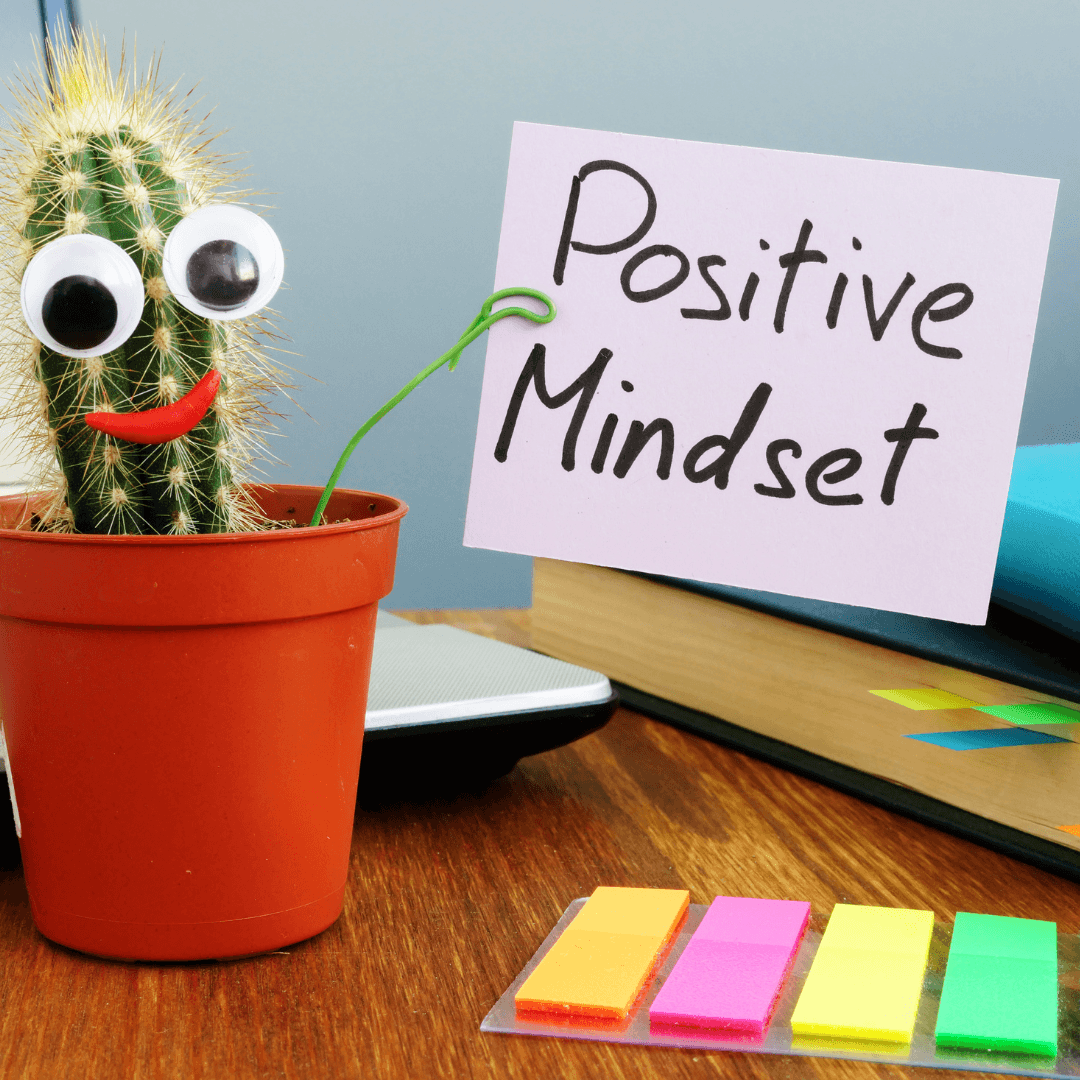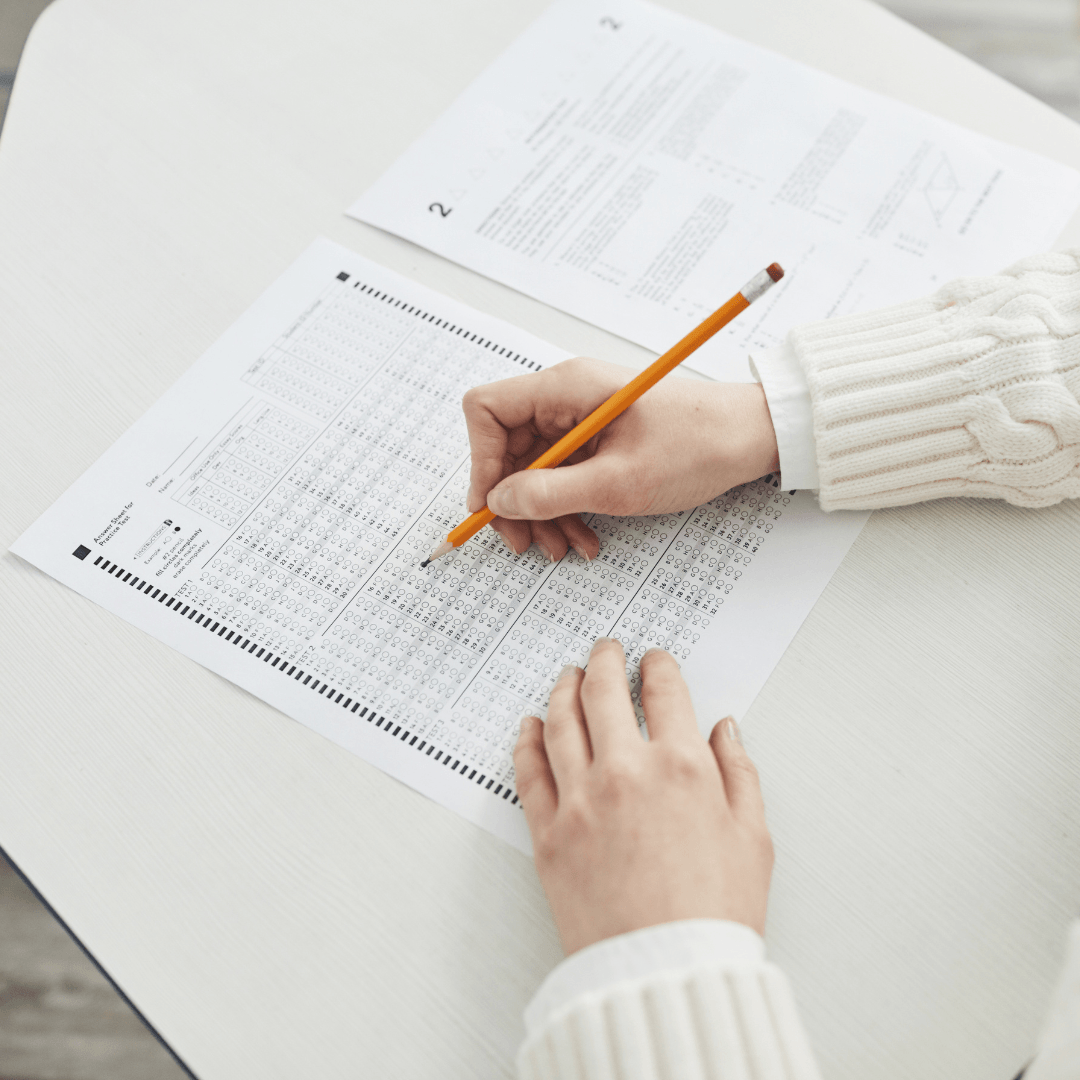Best Ways To Deal With Exam Stress
Best Ways To Deal With Exam Stress
Exams have an uncanny ability to turn even the most composed students into bundles of nerves. Dealing with exam stress is a challenge and an opportunity to transform into a more resilient and confident student.
That pit in your stomach, the racing heart, the looming fear of the unknown – we've all been there. But what if I told you it doesn't have to be this way?
This article is your roadmap to conquer exam stress and emerge as a survivor and a thriving, confident student. From time-tested study techniques to mindfulness exercises, we will delve into an array of strategies that will equip you with the tools to tackle exams head-on.
Say goodbye to the sleepless nights and jittery mornings. Let's embark on a journey of resilience, where you emerge stronger, more composed, and ready to tackle whatever challenges your academic path throws you. Welcome to a world where exams are no longer the source of dread but an opportunity to shine.
The Impact Of Exam Stress
In the tumultuous world of academics, where exams and assessments loom like impending storms, it's no secret that stress often takes center stage.
The infamous exam stress, a companion to students of all ages, is not merely an inconvenience; it's a formidable force that can shape the course of one's academic journey and even influence life beyond the classroom.
Yet, far too often, the importance of addressing exam stress is underestimated or overlooked entirely. Here are reasons why you should manage exam stress:
1. Academic Performance
High stress levels can impair cognitive functions, making it difficult to focus, remember information, and perform well in exams. Managing stress helps students think clearly and excel academically.
2. Physical Health
Physical signs of exam stress include headaches, stomachaches, and disturbed sleep. Chronic stress is associated with more severe health issues like weakened immune function and heart problems.
3. Emotional Well-Being
Unmanaged stress often leads to anxiety and depression. Learning to cope with stress can significantly improve emotional well-being and mental health.
4. Time Management
Stress management techniques often involve time management skills. Students who are less stressed can allocate their study time more effectively and avoid last-minute cramming.
5. Reduced Anxiety
Stress management helps reduce feelings of anxiety and panic, especially during high-pressure exams. Students who manage their stress remain calmer and more composed during the test.
6. Improved Focus
Stress can scatter your attention and make concentrating challenging. Effective stress management helps students focus and stay on task, resulting in more productive study sessions.
7. Confidence Boost
Managing stress builds self-confidence. When students know they can cope with academic pressure, they approach exams with a positive mindset, which can enhance their performance.
8. Resilience
Coping with exam stress fosters resilience, a valuable life skill. It helps students deal with stressful academic personal, and professional situations.
9. Healthy Lifestyle
Stress management often involves promoting a balanced lifestyle. Students learn the importance of proper nutrition, regular exercise, and adequate sleep, all essential for overall well-being.
10. Positive Coping Strategies
Instead of turning to unhealthy coping mechanisms like excessive caffeine intake or procrastination, students who manage stress develop healthier ways to deal with academic pressure.
The impact of exam stress extends beyond academic performance and reaches into various aspects of a student's life. Managing stress is a skill that can yield long-term benefits, promoting both academic success and personal well-being.
Best Ways To Deal With Exam Stress
As exam season approaches, a palpable tension fills the air. The library becomes a second home, caffeine intake soars, and students everywhere dance daily with textbooks.
It's the time of year when the pressure to perform is at its peak, and with it comes the unwelcome companion of exam stress.
As students gear up for the impending exams, the question of how to effectively deal with exam stress looms large, and this article will serve as your trusted guide to navigate this challenging period.
These engaging points will provide your readers with a comprehensive guide on how to deal with exam stress and promote academic success effectively:

1. Mindfulness And Meditation
Amid the chaotic whirlwind of exam stress, mindfulness and meditation emerge as quiet superheroes. These techniques give students a mental sanctuary to find solace, clarity, and resilience.
Through mindfulness practices, individuals learn to stay present, grounding themselves in the now rather than spiralling into anxiety about the future. Meditation equips students with a powerful tool to tame the anxious mind.
It's not about emptying your thoughts but acknowledging them and gently guiding your focus to the present moment.
Research has shown that regular mindfulness and meditation can reduce the body's production of stress hormones, alleviate anxiety symptoms, and enhance cognitive function.
For students, this means improved concentration, memory, and problem-solving skills – essential ingredients for acing exams.
Whether taking a few minutes to focus on your breath, practicing mindfulness while walking in nature, or engaging in guided meditation sessions, these techniques can be game-changers in your quest to conquer exam stress.

2. Healthy Study Habits
Maintaining healthy study habits is like laying the foundation for a stress-free exam experience. Deal With Exam Stress by ensuring your study habits are productive and conducive to maintaining a calm and collected mindset during exams.
Effective time management is key, helping students create structured study schedules and allocate sufficient time for each subject.
Employing proven study techniques like active recall, spaced repetition, and summarization can boost retention and understanding, reducing last-minute cramming and stress.
A well-organized study environment minimizes distractions and enhances focus, ensuring productive study time. When you invest time in these practices, you retain knowledge better and gain the confidence to face exams with a clear and calm mind, significantly reducing stress levels.
So, from carefully planning your study sessions to choosing the right study spot, healthy study habits can make all the difference in your exam journey.

3. Healthy Snacking
Healthy snacking is not just a treat for your taste buds but a smart strategy to keep your energy levels up during those long study sessions.
Refuelling your body and brain is vital when hitting the books for hours. Opt for nutrient-rich snacks like nuts, seeds, or a small bowl of fresh fruit. These choices provide steady energy without the sugar crash of unhealthy snacks.
If you're a fan of something savoury, consider whole-grain crackers with hummus or carrot sticks with a tasty dip. Staying hydrated is equally important, so pair your snacks with water or herbal tea.
By making smart snack choices, you'll maintain focus, keep stress at bay, and increase your productivity during study sessions. After all, a well-fueled mind is your best asset when tackling exams.

4. Breathing Techniques
Amid exam stress, your breath can be your best friend. Various breathing techniques can help you stay calm, centred, and focused during those high-pressure moments.
One simple yet effective method is deep abdominal breathing. Start by inhaling deeply through your nose for a count of four, allowing your abdomen to rise, and then exhale through your mouth for a count of four, feeling the tension melt away.
Another technique is box breathing, where you inhale, hold, exhale, and hold your breath for four equal counts. This practice not only calms the nervous system but also sharpens your concentration.
Alternatively, try diaphragmatic breathing, a technique that engages your diaphragm for deeper, more calming breaths.
The “4-7-8” method, popularized by Dr. Andrew Weil, involves inhaling for four counts, holding for seven, and exhaling for eight, promoting relaxation and reducing anxiety.
Incorporating these breathing exercises into your study routine and during the exam can significantly affect your stress levels and overall performance. Your breath is always there to help you find that moment of serenity amidst the chaos.

5. Stay Organized
A cluttered study space often mirrors a cluttered mind. Maintaining an organized study environment is crucial when dealing with the pressures of exam preparation.
To effectively Deal With Exam Stress, maintaining an organized study environment boosts your productivity and reduces anxiety during the crucial exam preparation phase.
An orderly space reduces distractions, helping you stay focused and efficient. Imagine finding your notes in a chaotic jumble of papers or struggling to locate a specific textbook buried under a pile of clutter.
These scenarios can quickly lead to stress and hinder your productivity. Keeping your study area neat and your materials well-organized creates a conducive atmosphere for learning.
You'll spend less time searching for what you need and more time absorbing the information. Whether arranging your books, having a system for notes, or investing in storage solutions, an organized study space contributes to a more relaxed and effective study experience.
So, clear your desk, declutter, and structure your study area – your mind will thank you for it when you're better equipped to tackle the challenges of your exams.

6. Breaks And Rewards
Regular breaks and incorporating rewards into your study routine are powerful strategies to combat exam stress. Long, uninterrupted study sessions can lead to burnout and increased tension.
By scheduling short breaks, you allow your mind to recharge and your body to relax. During these intervals, take a brisk walk to get your blood flowing, have a nourishing snack to refuel your energy, or practice a quick relaxation exercise to ease any built-up tension.
Additionally, setting milestones and rewarding yourself upon their completion can serve as a powerful motivator. This could be as simple as enjoying your favorite treat, watching a short video, or even indulging in a chapter of a book you love.
These breaks and rewards act as positive reinforcements, making your study sessions more enjoyable and productive.
They remind you that your hard work deserves recognition and that a small reprieve can lead to better focus and reduced exam stress.
So, implement this technique to balance your study sessions and transform them into a more manageable and rewarding experience.

7. Positive Mindset
Maintaining a positive mindset is crucial to effective stress management during exams. It's natural to have self-doubt and anxiety when preparing for tests, but the key is reframing those negative thoughts.
Instead of dwelling on what you might not know or haven't covered, focus on your accomplishments and how far you've come in your studies. Replace self-doubt with self-encouragement by reminding yourself of your hard work and determination.
Tell yourself that you've prepared to the best of your ability, which is a significant achievement. This shift in mindset can be transformative, helping you approach exams with confidence rather than fear.
By embracing the positive aspects of your preparation and achievements, you'll be better mentally able to tackle your exams and minimize stress. Remember, a positive mindset can be your most valuable tool in staying calm and focused during test-taking.

8. Practice With Mock Exams
Practicing with mock exams is an invaluable strategy to reduce exam stress and enhance confidence. These practice tests allow you to familiarize yourself with the format and conditions you'll face during the real exam.
You can better manage anxiety and nervousness by simulating the actual testing environment. Mock exams not only help you understand the structure of the test but also give you a chance to assess your preparedness.
You may pinpoint your strengths and weaknesses as you complete practice questions, allowing you to adjust your study strategy properly.
Moreover, successful completion of mock exams provides a confidence boost. When you've faced similar questions and conditions, you enter the exam with familiarity and readiness.
So, remember to integrate practice exams into your study routine as a powerful tool for minimizing stress and maximizing your performance when it matters most.

9. Stay Hydrated
Staying hydrated is a simple yet often overlooked aspect of managing exam stress. Proper hydration is a fundamental part of the equation when it comes to dealing with Exam Stress, as it helps maintain your mental clarity and overall well-being during the challenging exam period.
Dehydration can significantly affect your concentration and cognitive function, which are crucial when studying and taking exams.
When dehydrated, your brain doesn't function at its best, reducing focus and memory recall. It can also make you feel tired and more stressed as your body struggles to cope with the added pressure of exams. To avoid these pitfalls, ensure you drink enough water throughout the day.
Keep a water bottle nearby during your study sessions and sip on it regularly. Additionally, you can incorporate hydrating foods like fruits and vegetables into your diet.
Staying properly hydrated not only boosts your cognitive abilities but also helps you feel more alert and less stressed. So, consider the positive impact of a well-hydrated brain on your exam performance and overall well-being.

10. Sleep And Rest
Adequate sleep is a cornerstone of effective stress management during exam periods. It plays a pivotal role in memory consolidation, which means the information you've worked hard to study gets neatly organized in your brain for easy retrieval.
When you don't get enough sleep, this process is compromised, and it can lead to memory lapses and increased stress. Therefore, creating a sleep-friendly routine is crucial. Get 7-9 hours of good sleep each night.
Go to bed and wake up at the same time every day, even on the weekends, to establish a regular sleep regimen. Limit your time before screens before bed because the blue light they emit can interfere with your sleep cycle.
Make sure your bedroom is quiet, dark, and comfortable. Before going to bed, relax by doing something peaceful like reading or taking a warm bath.
Making sleep a top priority can help you stay stress-free and guarantee that you are well-rested, attentive, and prepared to take your tests confidently.

11. Exam Strategies
Effective exam strategies can significantly reduce stress and enhance performance. For multiple-choice exams, start by quickly reviewing all the questions to gauge the scope of the test.
Answer the questions you're confident about first and mark the uncertain ones for later review. When tackling essay exams, organize your thoughts before writing. This can help you maintain clarity and structure throughout your essay.
For practical assessments, practice is key. Go through relevant exercises or tasks to reinforce your skills. Whatever the exam format, time management is crucial.
Allocate specific time to each question or section, ensuring you won't get caught up on a challenging item. Remember to review your answers if time allows, and trust your preparation. A strategy tailored to your exam type can boost your confidence and reduce assessment anxiety.

12. Stay Flexible
In the dynamic world of exam preparation, staying flexible is akin to having a secret weapon against stress. Life throws unexpected curveballs – perhaps a sudden illness, family emergency, or a shift in your study environment.
When these unforeseen challenges arise, staying adaptable is crucial. Rather than getting derailed by the unexpected, you adjust your approach.
It might entail reorganizing your study schedule to accommodate the lost time or refocusing your efforts on the most critical topics.
Being flexible also means knowing when to step back, breathe, and regroup, especially if you hit a wall in your studies. It's about being kind to yourself and recognizing that the path to exam success is rarely a straight line.
When you embrace flexibility as part of your study strategy, you reduce stress and become a more resilient and resourceful learner.
Life's surprises might still catch you off guard, but with flexibility in your toolkit, you'll be better equipped to face them head-on.

Conclusion
In the tumultuous journey of exams, stress often stands as an unwelcome companion. However, it doesn't need to be the dominant force that shapes your experience.
The path to academic success is fraught with hurdles, but your ability to confront stress head-on will define how you overcome them.
In education, knowing how to Deal With Exam Stress is not just a skill but a superpower that can empower students to conquer their academic challenges with confidence and composure.
As you implement these techniques and make them an integral part of your study routine, you alleviate the anxiety that exams can induce and enhance your overall well-being.
Remember, exams test your knowledge and are a testament to your resilience. So, breathe deeply, stay focused, and take each exam as an opportunity to shine. Stress may knock on the door, but with these strategies, you can show it and stride confidently toward success.
I trust you enjoyed this article about the Best Ways To Deal With Exam Stress. Please stay tuned for more blog posts to come shortly.
JeannetteZ
>>>Please click here to read my all-inclusive article about Lessons That Will Teach You All About Stress<<<
>>>Are you interested in Natural Healing And Stress Relief through Herbs? Please click here for my #1 Recommendation<<<
Your Opinion Is Important To Me
Thoughts? Ideas? Questions? I would love to hear from you. Please leave me your questions, experience, and remarks about this article on the Best Ways To Deal With Exam Stress in the comments section below. You can also reach me by email at Jeannette@Close-To-Nature.org.
Disclosure
This post may contain affiliate links. I earn from qualifying purchases as an Amazon Associate and other affiliate programs. Please read my full affiliate disclosure.
You might also enjoy these blog posts:
13 Best Simple Ways To Deal With Stress At Work
12 Best Tea Brands For Stress Relief
What Helps A Stress Headache Naturally?
Top Tips To Reduce Stress For Your Horse







